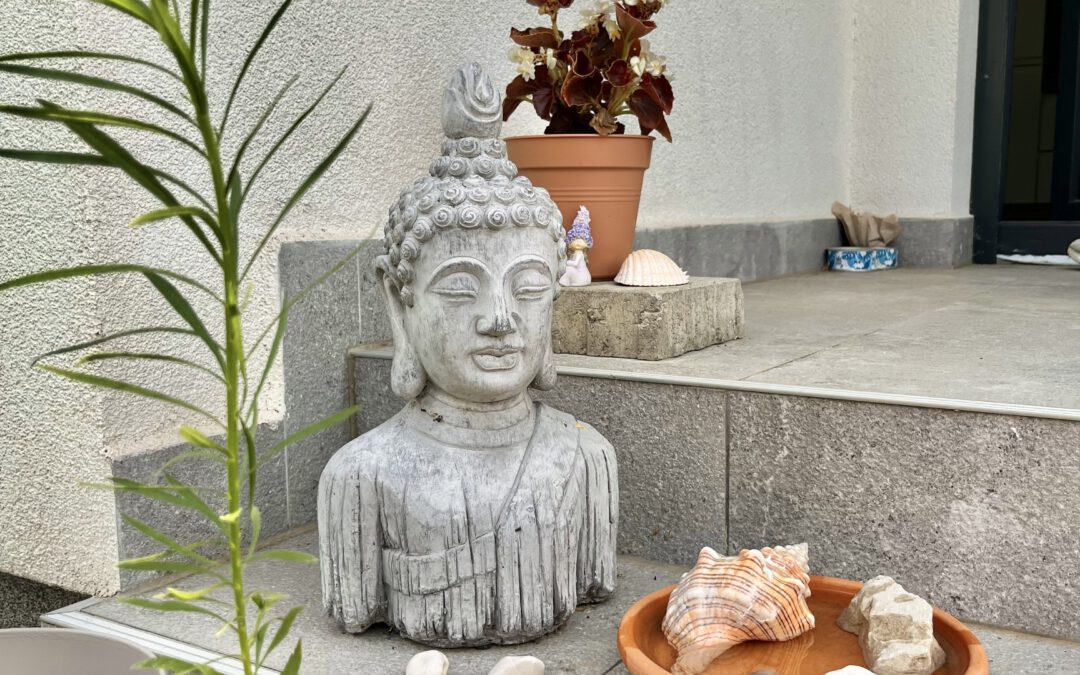
Self-care or Self-optimization
True Self-Care: Reconnecting With Your Real Needs
Self-care is a concept that often comes up in therapy. What I frequently notice is that many people confuse self-care with self-optimization. In today’s world, we have access to an overwhelming amount of information about self-care—countless self-help books, podcasts, and advice from all corners. But these resources are often filled with „SHOULDS“: You should eat well, you should exercise, you should balance your work and personal life, you should set boundaries, you should listen to your body.
Of course, all of that is true. However, what I observe time and time again is that the essential question – how to practice effective self-care – is often left out of the conversation. For someone going through a tough time, dealing with old trauma, or simply feeling exhausted, these well-meaning suggestions can quickly become overwhelming. They know what they should be doing, but they have no clear idea of how to actually implement these self-care ideas into their daily lives. When they struggle to follow these guidelines, they end up blaming themselves, believing that if they were just stronger or better, they’d feel okay. Consequently, this self-blame only adds to the sense of being overwhelmed.
True Self-Care Is Not Another To-Do List Item
Authentic self-care is something entirely different. Rather than being another item on your to-do list that you have to check off, proper self-care is about treating yourself with kindness and paying attention to what you truly need in any given moment. Unlike self-optimization, genuine self-care focuses on listening to yourself instead of achieving or optimizing.
I’ve seen it time and again with clients: They hope that „if I just do something good for myself, I’ll feel better.“ But here’s the catch—what happens when your body actually needs rest, but instead, you go for a jog because you’ve been told that exercise is good for stress? You might end up feeling worse, not better. Alternatively, you decide to rest but feel guilty because you think that maybe running would have been the „right“ thing to do. As a result, a cycle of self-doubt begins, where you are always questioning whether your self-care practice is enough, or if you’re doing the right thing.
Reconnecting With Yourself Through Effective Self-Care
This is why, in my work with clients, I often start by helping them reconnect with themselves through proper self-care—to learn how to feel again. For many people, it’s a painful realization that they’ve lost touch with their own needs. Moreover, this disconnect between what they need and what they do often leads to a constant sense of unease and emotional exhaustion. True self-care begins when you start to recognize and honor your needs again.
Breaking Free from Self-Optimization With Mindful Self-Care Practices
So, what can you do? How can you break free from the self-optimization trap and move toward genuine self-care?
Here’s a simple self-care practice I recommend: Ask yourself these three questions regularly:
- How am I feeling physically?
- How am I feeling emotionally?
- Where am I right now – in the present, stuck in the past, or preoccupied with the future?
These questions are a great starting point for practicing daily self-care. Nevertheless, it’s not always easy to answer them, and many of my clients find this difficult at first. We’re often used to thinking in broad, vague terms, like „I don’t feel well,“ without taking the time to explore further. Yet being vague keeps us stuck. For example, instead of saying, „I don’t feel good,“ try getting specific: „I didn’t sleep well, so I’m tired,“ or „I ate something that upset my stomach,“ or „I got bad news, so I’m feeling sad.“
By breaking it down into specifics, you give yourself something tangible to work with. Although vague feelings are hard to handle, the more you practice naming what you’re experiencing, the easier it becomes to respond to it with appropriate self-care techniques.
Be Patient With Yourself – That’s What Self-Care Truly Means
If you find it hard to answer these questions clearly, that’s okay. There’s no pressure to get your self-care practice „right.“ Simply noticing that it’s difficult is a valuable step in itself. Therefore, just keep coming back to the practice. Try it again tomorrow, and the day after that. Each time you ask, you are signaling to yourself that you are listening and open to feeling what’s going on inside. Even if the answers don’t come easily, you’re showing yourself that you care enough to ask.
And remember—this is what self-care is really about. It’s not about being perfect or getting everything just right. Instead, true self-care is about being patient with yourself, about staying curious, and about creating the space for your own needs to surface. The key is to approach this self-care practice with gentleness, not judgment. Over time, you will learn to hear your body and emotions more clearly, and consequently, you’ll be able to meet your own needs in a way that truly supports you, not just adds more pressure.





